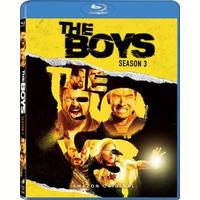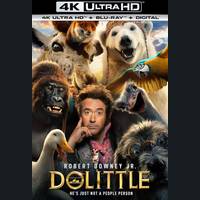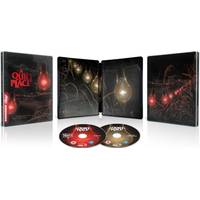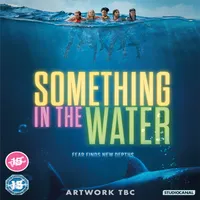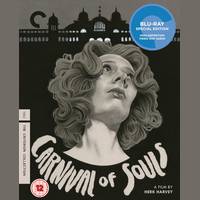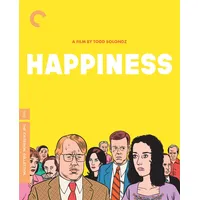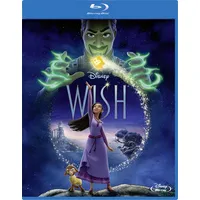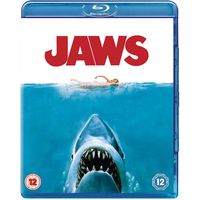BFI The Music Lovers
Description
Guided throughout by the swells and dips of Tchaikovsky’s music, Ken Russell’s The Music Lovers examines the tragedies of Tchaikovsky’s life through opulent and fantastic musical sequences running alongside a narrative of the composer’s life between 1875 and 1881. Touching on his disastrous marriage with Antonina Miliukova, his relationship with his patroness Nadezhda von Meck, and his repressed homosexuality, The Music Lovers is anchored by magnetic central performances from Glenda Jackson following her Academy Award for Women in Love, coupled with Richard Chamberlain as a neurotic Tchaikovsky. Forming part of Ken Russell’s collection of experimental composer biopics, The Music Lovers features plenty of his signature provocation and excess, but ultimately takes a sympathetic lens to Tchaikovsky’s life in a repressive Russian society. Extras- Presented in High Definition- Newly recorded audio commentary by film historian Matthew Melia- Interview with Alexander Verney-Elliott (2024, 20 mins): Ken Russell's son looks back upon his father's work, and remembers his own appearance in The Music Lovers- Charlotte Bronte Enters the Big Brother House (2007, 16 mins): Ken Russell staged, directed and filmed this 'Radical Bronte' ballet for young people, illustrating Jane Eyre- The Guardian Interview: Melvyn Bragg (1988, 76mins): ten years after the inception of The South Bank Show, Melvyn Bragg discusses his career in television and film writer Ronald Harwood, at the National Film Theatre in London.- Galina Ulanova in Swan Lake (1940, 6 mins): one of the greatest ballerinas of all time is seen performing a dance from Swan Lake, in this rare film held by the BFI National Archive- Musical Highlights from USSR Today (10 mins): edited highlights from three editions of the Soviet newsreel, gathering items about Tchaikovsky and Russian musical arts- Costume designs (2024, 2 mins): original sketches by Shirley Russell- Original trailer- **FIRST PRESSING ONLY** Illustrated booklet with new writing on the film by Matthew Melia, a new essay by Caroline Langhorst and contributions from Alexander Verney-Elliott and Lisi Russell
You may also like
loading
Discover more









![The Incredible Hulk (2008): Reel Heroes Cover [Blu-ray][Region Free] from GameSeek](https://i.dealdoodle.com/images/t/AWEX3DV0t3vg33OQyDV-.jpg)
![Batman Vs Two-Face Artcards [Blu-ray + Artcards] [2017] from GameSeek](https://i.dealdoodle.com/images/t/AWEXvGqm1HLsQut3qoox.jpg)

![Amazonia [3D Blu-Ray + Blu-ray] from GameSeek](https://i.dealdoodle.com/images/t/AWEYhcRa0-SQn-Shq43q.jpg)
![After Earth [blu-ray] from GameSeek](https://i.dealdoodle.com/images/t/AWGkqGga5ahVXMxpTt79.jpg)











![Films That Define A Decade: '70s [DVD] from GameSeek](https://i.dealdoodle.com/images/t/AWEhVEUR0-SQn-ShrEyf.jpg)
![Star Trek The Original Series: Complete [Blu-ray] from GameSeek](https://i.dealdoodle.com/images/t/AWEhbODc1HLsQut3q4Pn.jpg)
![Ninja Assassin/Enter the Dragon Double Pack [Blu-ray] [1973] [Region Free] from GameSeek](https://i.dealdoodle.com/images/t/AWFqDJLNXnZvD4iIIaWi.jpg)
![Tatami Galaxy - Collector's Edition [Blu-ray] from GameSeek](https://i.dealdoodle.com/images/t/AWEhxxRD0-SQn-ShrHXG.jpg)
![New Blood [Blu-ray] from GameSeek](https://i.dealdoodle.com/images/t/AWEhx47V0-SQn-ShrHXe.jpg)










![Rock n' Roll High School [Blu-ray] from Zavvi](https://i.dealdoodle.com/images/t/XD5TeJMB7qPkcNdg2Oau.jpg)
